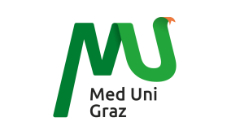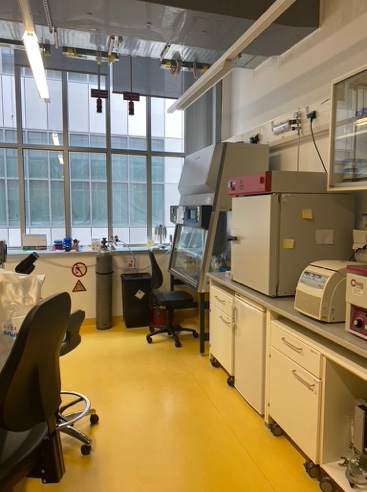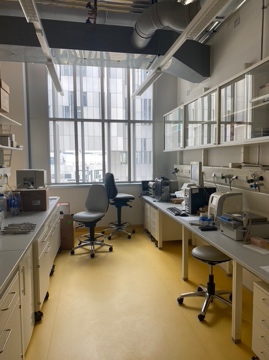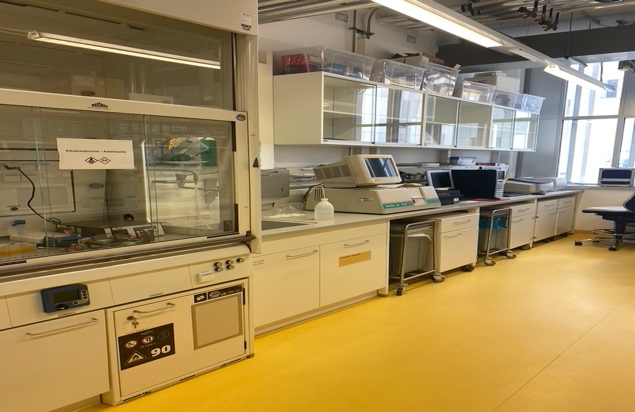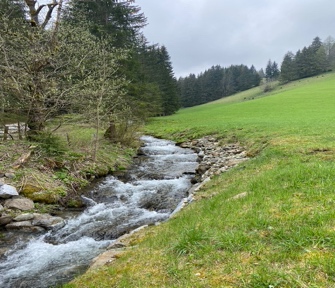
MSc Dorota Gajowniczek-Ałasa
Year II, Doctoral School, University of Life Sciences in Lublin
Training in Austria, Medical University of Graz
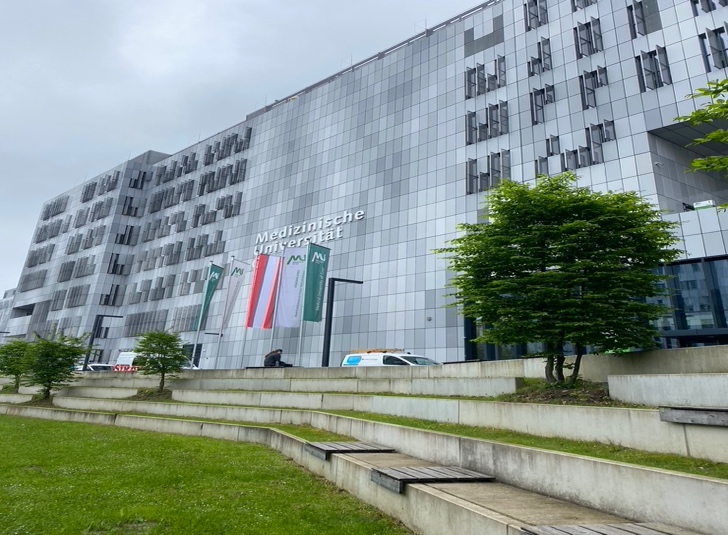 The trainings we had the pleasure to attend were conducted by scientific staff from the Department of Medicinal Chemistry at the Medical University of Graz. In addition to the lecture sessions, we worked in brand new laboratories (the university recently moved from its old premises) where we prepared samples containing nanoparticles for digestion (we will continue this collaboration in the next steps). We also had the opportunity to familiarize ourselves with thermogravimetry, differential scanning calorimetry coupled with Fourier-transform infrared spectroscopy (TG/DSC-FTIR), and selected methods of preparative chromatography (liquid chromatography).
The trainings we had the pleasure to attend were conducted by scientific staff from the Department of Medicinal Chemistry at the Medical University of Graz. In addition to the lecture sessions, we worked in brand new laboratories (the university recently moved from its old premises) where we prepared samples containing nanoparticles for digestion (we will continue this collaboration in the next steps). We also had the opportunity to familiarize ourselves with thermogravimetry, differential scanning calorimetry coupled with Fourier-transform infrared spectroscopy (TG/DSC-FTIR), and selected methods of preparative chromatography (liquid chromatography).
However, the most interesting topic for us was the evaluation of extinguishing properties of reactive oxygen species by selected nanoparticles and natural compounds (polyphenols and terpenes). But to delve into such an extensive topic, we would have to stay in Austria for another month – and the weather there really didn’t encourage it!
If you’re planning to visit Austria in May, it’s good to have a raincoat and an umbrella. It rained with only short breaks during our week-long stay. I couldn’t even take a single sunny photo. Despite the tight schedule, we found time for sightseeing, and Graz and its surroundings are truly worth it.
I rate the whole trip as fantastic, not only for obvious reasons like improving qualifications. I gained a perspective on academic life and will treat the path to a doctorate more as an adventure than an obligation.
University of Life Sciences in Lublin
13 Akademicka Street, 20-950 Lublin
VATIN 712 010 37 75
REGON no. 000001896
ePUAP: /UP-Lublin/SkrytkaESP
